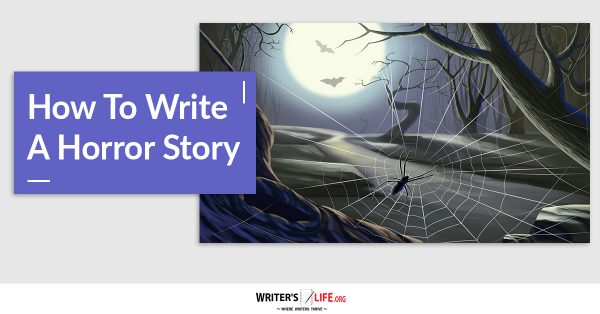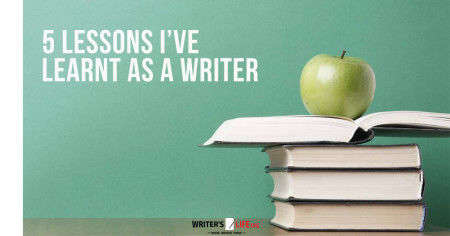- How To Tackle Jealousy In Creative Writing
- Common Submission Mistakes
- How To Stop Your Blog Becoming Boring
- The One Thing Every Successful Writer Has In Common
- How To Make Yourself Aware Of Publishing Scams
- Why Almost ALL Writers Make These Grammar Mistakes At Some Point
- 5 Tips For Authors On How To Deal With Rejection
- Top Mistakes to Avoid When Writing a Novel
- How to Avoid Common New Writer Mistakes
- 10 Mistakes New Fiction Writers Make
How To Write A Horror Story

Horror stories can be great fun to write. Not only do they allow writers to delve into the darkest depths of their imaginations, but they enable us to be creative, witty and use many different writing devices to evoke certain reactions in the reader.
Writing a good horror story is all about getting the balance right. The story needs to be believable in a way that the writer must write so that readers invest in the story - if they fail to do so, the readers won’t care enough to be scared, disturbed, unsettled, or disgusted by the events that take place.
With planning, research into the genre and experimenting with what works, writing a good horror story can be mastered. To get you started here are some useful tips:
Pick a theme
There are many different ways to write a horror story, and it’s essential that you decide what kind of horror story you want to produce early on. A horror story that unsettles readers or makes it difficult for them to sleep at night is going to be different to one which is full of more disgusting events, blood and gore and things which you know will gross your readers out.
Because there are so many ways you can write your story, you must accept that it can’t appeal to everyone. Horror readers are likely to enjoy a particular kind of story and to find others silly, or even dull. But as long as you have decided on the sort of story you want to write and then make sure it appeals to that kind of audience then you will start off on the right track.
Research the genre
Researching the horror genre will help you decide where you want to place your book and also give you lots of good ideas. Reading work from the greats such as Stephen King is a good place to start. However, reading as widely as you can gives you the most inspiration. Classic children stories and nursery rhymes can be unsettling and disturbing. Or historical stories, ghost stories, or urban legends can also be interesting to look at.
Concentrate on the feelings you are trying to evoke
A good horror story needs to make readers feel a combination of suspense and dread. Building up tension and curating a sense of dread in this way will keep your readers on the edge of their seats. You can either do this through the eyes of the protagonist, seeing events unfold as they do, or letting the reader see things that the protagonist can’t - such as the man hiding in the wardrobe when they come home form work.
Use your own experiences of being scared
Thinking about what scares you will help you write a genuine horror story. Many fears that you have are universal, fear of being alone, of being attacked, of losing family member of having your freedom taken away from you, of clowns, spiders or ghosts. Tapping into what you are frightened of will make it easier for you to explore the emotions they evoke, and how you would react if forced to confront those fears.
Concentrate on how your characters feel
It is the subjective reaction of your readers that will determine the success of your horror story. Because of this, you must concentrate on creating extreme feelings within the reader, and you do this through your characters. Shock, paranoia, dread, suspense, and physiological terror are all devices commonly used to capture these feelings and by creating a sense of the supernatural, including horrifying details, altered realities, and a sense of uncanny your story will work to do this.
Plan your plot
A horror story cannot be horrific all the time. If you, never give your reader a break from the disturbing and terrifying events that take place your reader will quickly become exhausted, or worse, desensitised to what’s happening in your book. Also, be prepared to have bad things happen to your characters. Readers should care enough about your characters to not want these bad things to happen to them, but they should happen nonetheless. There should also be enough at stake that making bad decisions, falling into traps or not being able to fight against or overcome the horrific events would be catastrophic for the characters in your book.
Avoid cliches
Whatever the genre of your book, it’s easy to fall into cliches - and horror is no exception. Try always to put a unique twist on your work. While you’ll no doubt use tried and tested devices and take inspiration from others, think about how you can make your horror story your own, and one that stands out from the crowd.
Writing a good horror story takes time and patience, research and effort, just as writing any good story does! By following the tips above, taking your time and not being afraid to experiment and push your boundaries, you’ll come up with a great horror story in no time!

Bethany Cadman -author of 'Doctor Vanilla's Sunflowers'



















